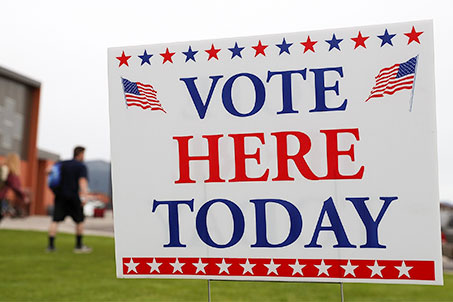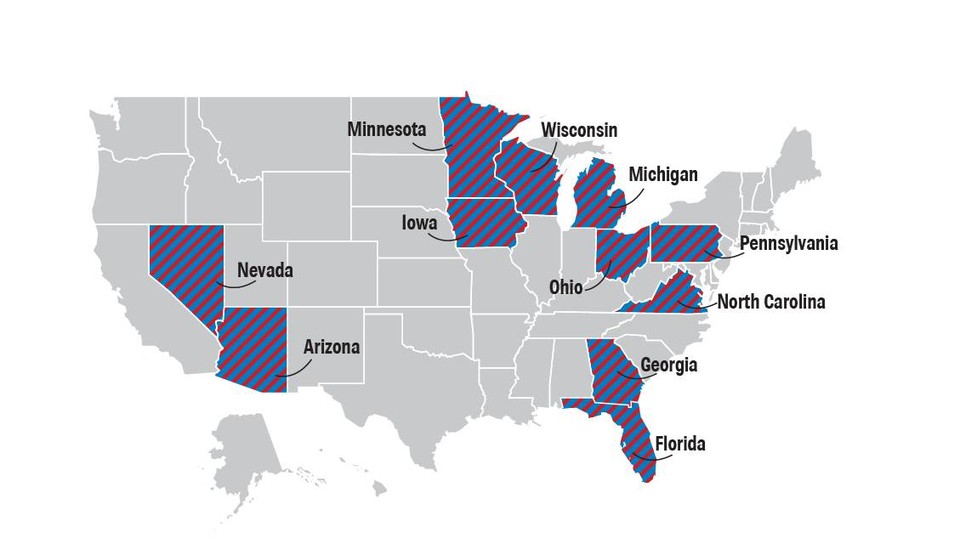By: Jordan Meadows (Staff Writer)
Leaders from the Center for Popular Democracy and Right to the City Action hosted a virtual press call on Thursday that unveiled the results of a housing poll conducted by HIT Strategies. The poll provided insight into the concerns of voters across the political spectrum, particularly among renters and homeowners, in key battleground states including Arizona, Pennsylvania, Michigan, North Carolina, and Nevada.
 During the press call, Analilia Mejia, Co-Executive Director for the Center for Popular Democracy, and Dawn Phillips, Executive Director for Right to the City, presented key insights from the poll. They were joined by special guest Congressman Ro Khanna (D-CA).
During the press call, Analilia Mejia, Co-Executive Director for the Center for Popular Democracy, and Dawn Phillips, Executive Director for Right to the City, presented key insights from the poll. They were joined by special guest Congressman Ro Khanna (D-CA).
According to the findings, housing affordability emerges as a top concern for voters, with a staggering 84 percent of swing state voters citing the cost of rent and housing as a major or significant problem in their respective states. The sentiment was echoed by 75 percent of respondents who identified housing costs as the primary source of stress within their families, surpassing other economic issues.
With 70 percent of respondents expressing a preference for candidates supporting rent stabilization policies, and 67 percent prioritizing those backing government funding for permanently affordable rentals, it’s evident that housing policy will be a decisive factor in voter decision-making.
“We have a housing crisis in America. We know speaking about this housing crisis is something voters care about specifically, particularly young voters and voters of color,” Congressman Khanna said.
Renters demonstrated a higher propensity to support President Biden, while homeowners exhibited a preference for former President Trump. One of the standout findings of the poll was the disparity in favorability ratings between prominent political figures Republican Lieutenant Governor Mark Robinson and Democrat Attorney General Josh Stein among homeowners.
While 31 percent of homeowners viewed Robinson favorably, a significant 36 percent expressed disfavor towards him. In contrast, Stein garnered less favorability among homeowners, with only a 25 percent favorability rating, but notably lower disfavor at 18%.
The data indicates a divergence in support for renters as well: Stein managed to win over a greater portion of renters compared to Robinson, with only 18 percent of renters viewing him unfavorably, compared to 29 percent for Robinson.
Additionally, the poll shed light on the varying levels of voter enthusiasm between homeowners and renters. Homeowners displayed markedly higher enthusiasm, with nearly 80 percent expressing eagerness. In contrast, less than 60 percent of renters indicated a similar level of enthusiasm.
The divergence in views between homeowners and renters is notable. While renters lean towards candidates supportive of progressive housing solutions, homeowners exhibit a more mixed sentiment, with varying favorability towards different political figures.
In North Carolina specifically, the data highlights a strong appetite for candidates advocating for rent stabilization and increased funding for affordable housing, particularly among younger voters and renters of all ages. NC stands out with the highest percentage of voters indicating a likelihood to support candidates championing these issues compared to other states surveyed.
The poll also illuminates a glaring gap between political discourse and voter priorities, especially among younger and renter demographics. While housing affordability ranks high on their list of concerns, voters in this poll think politicians often overlook these pressing issues in favor of other topics like inflation and healthcare. Nonetheless, respondents overwhelmingly believe that prioritizing housing affordability in political agendas would significantly improve their personal situations.
“Whoever we were talking to, we kept hearing over and over: we are in the grips of a housing crisis, and we feel unseen and unheard,” Analilia Mejia, the Co-Executive Director of the Center for Popular Democracy, said. “So when we had the opportunity to work with HIT Strategies, we took it because we knew polling would show what we were seeing.”
Some of the proposed measures polled included Rent Stabilization, implementing regulations to cap annual rent increases in rental properties, ensuring they remain in line with the cost of living; Social Housing, establishing a government body tasked with creating sustainable, affordable housing options for all individuals in need; Eviction Justification, introducing legislation to prevent unjust evictions, mandating landlords to renew leases for current tenants unless valid reasons, such as non-payment or lease violations, are present; Housing Vouchers Expansion, expanding the availability of government housing vouchers to provide financial assistance to individuals and families struggling to afford rental costs.
On Monday, more than one hundred individuals affiliated with Action NC, the Center for Popular Democracy, and its partners from across ten states – including California, New York, Texas, Connecticut, New Jersey, and Louisiana – embarked on a tour of housing owned by corporate landlords in Charlotte, North Carolina.
The tour ended with a gathering at the home of a tenant who was facing eviction from the landlord, Amherst, a large corporation. Organizers and tenants alike are rallying to demand that the tenant’s residence be converted into tenant-owned housing through the Charlotte Land Trust.
Jessica Moreno, Community Organizer at Action NC, said that five mobile home communities are coming together to fight corporate landlords who arbitrarily tow their vehicles, don’t allow them to get titles to their homes, raise pricing of the rent, and kick people out of their homes to redevelop the property while raising costs for others in the community.
“These corporate landlords of single-family homes have yearly rent increases which worsens the problem…finding affordable housing is hard,” Moreno said. “People can’t talk to anyone face to face. It’s legal, but it’s also unethical retaliation.”
Moreno explained that multiple states were involved in the event because corporate landlords can buy properties all over the country, without ever having to deal with those who rent from them – broadening the problem across state borders.
“Everyone’s going through the same thing: they’re dealing with displacement and unaffordability,” Moreno said.
